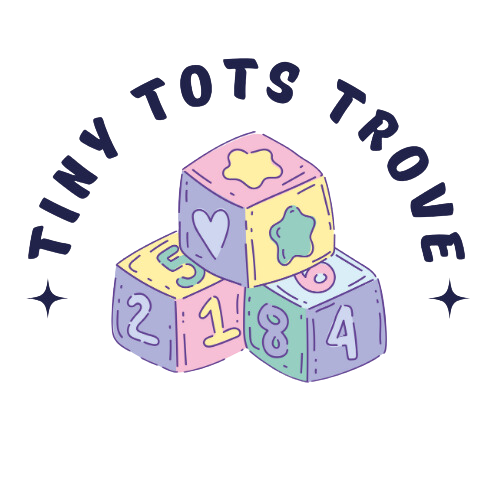
The first 1,000 days of a child's life, spanning from conception to their second birthday, is a critical window of opportunity for ensuring their long-term health and cognitive development. Nutrition during this period is vital for brain development, which can significantly influence a child's IQ and their ability to handle life's challenges. This article explores how parents can optimize nutrition during this crucial period and how it can foster smarter, more self-reliant individuals.
The Science Behind Nutrition and IQ
Research has consistently shown that proper nutrition in the early stages of life is linked to better cognitive outcomes. Nutrients such as omega-3 fatty acids, iron, zinc, iodine, choline, and vitamins A, D, and B12 play essential roles in brain development. A study published in The Lancet highlights that deficiencies in these nutrients during the first 1,000 days can lead to impaired cognitive development and lower IQ scores.
Omega-3 fatty acids, particularly DHA (docosahexaenoic acid), are crucial for the development of the cerebral cortex, the part of the brain responsible for memory, attention, and problem-solving. Iron is necessary for the formation of myelin, which insulates nerve fibers and enhances the speed of neural communication. Iodine deficiency during pregnancy can lead to cretinism and severe cognitive impairments.
Practical Steps for Parents
-
Balanced Diet During Pregnancy:
Consume Omega-3 Rich Foods: Pregnant women should include fish like salmon, mackerel, and sardines in their diet, as well as plant-based sources like flaxseeds and chia seeds. DHA supplements are also an option.
Iron Intake: Lean meats, beans, spinach, and iron-fortified cereals are excellent sources of iron. Iron supplements might be necessary for some women under the guidance of a healthcare provider.
Adequate Iodine: Use iodized salt and consume dairy products, seafood, and eggs.
Folate Intake: Green leafy vegetables, citrus fruits, beans, and fortified cereals are rich in folate, essential for preventing neural tube defects and supporting brain development.
-
Breastfeeding:
Breastfeeding is highly recommended as breast milk contains all essential nutrients required for a baby's growth and brain development. The World Health Organization (WHO) suggests exclusive breastfeeding for the first six months and continued breastfeeding along with appropriate complementary foods up to two years or beyond.
-
Introducing Solid Foods:
Start with Nutrient-Dense Foods: Around six months, begin with iron-fortified cereals, pureed meats, and vegetables. Gradually introduce a variety of fruits, vegetables, grains, and proteins.
Avoid Processed Foods: Minimize the intake of sugary snacks, sodas, and processed foods that offer little nutritional value.
Include Healthy Fats: Avocado, olive oil, and nut butters are excellent sources of healthy fats that support brain development.
Variety in Diet: Introduce a variety of foods to ensure a wide range of nutrients. This includes fruits, vegetables, grains, proteins, and dairy products to provide balanced nutrition.
-
Ensuring Adequate Intake of Key Nutrients:
Vitamin D: Sun exposure and foods like fortified milk and fatty fish help maintain adequate vitamin D levels.
Zinc: Meat, shellfish, legumes, and seeds are rich in zinc, which supports cognitive function and immune health.
Choline: Eggs, lean meats, and nuts provide choline, crucial for brain development and memory function.
Vitamin A: Carrots, sweet potatoes, spinach, and dairy products are rich in vitamin A, important for vision and immune function.
Protein: Include adequate protein from diverse sources like lean meats, eggs, dairy products, beans, and lentils to support overall growth and brain development.
-
Hydration:
Ensure adequate fluid intake by offering water frequently once solid foods are introduced. Proper hydration is crucial for overall health and development.
Long-Term Benefits
Optimizing nutrition during the first 1,000 days not only enhances a child's IQ but also provides them with the tools needed for self-reliance and resilience. Children with better cognitive abilities are more likely to succeed academically, solve problems efficiently, and adapt to new situations with ease. These skills are foundational for handling life's challenges and achieving long-term success.
A review by the American Journal of Clinical Nutrition suggests that early-life nutrition interventions have profound and lasting impacts on cognitive outcomes, supporting the development of intelligence and adaptive skills necessary for future success.
Nutrition in the first 1,000 days is a powerful determinant of a child's cognitive development and future potential. By prioritizing a balanced diet rich in essential nutrients, parents can significantly influence their child's IQ and equip them with the skills needed for a successful and self-reliant life. Investing in early nutrition is not just about immediate benefits but about laying the groundwork for lifelong cognitive health and capability.
References
The Lancet. (2013). "Maternal and Child Nutrition: Executive Summary of The Lancet Maternal and Child Nutrition Series." Retrieved from The Lancet.
World Health Organization. (2020). "Nutrition: The First 1,000 Days of Life." Retrieved from WHO.
National Institutes of Health. (2021). "Iron: Fact Sheet for Health Professionals." Retrieved from NIH.
American Thyroid Association. (2019). "Iodine Deficiency." Retrieved from Thyroid.org.
Harvard T.H. Chan School of Public Health. (2020). "Types of Fat." Retrieved from Harvard.edu.
Mayo Clinic. (2021). "Pregnancy Nutrition: Healthy-Eating Basics." Retrieved from Mayo Clinic.
Centers for Disease Control and Prevention. (2021). "Folic Acid." Retrieved from CDC.
World Health Organization. (2020). "Breastfeeding." Retrieved from WHO.
American Academy of Pediatrics. (2021). "Starting Solid Foods." Retrieved from AAP.
Harvard T.H. Chan School of Public Health. (2020). "The Nutrition Source: Sugary Drinks." Retrieved from Harvard.edu.
National Institutes of Health. (2021). "Vitamin D: Fact Sheet for Health Professionals." Retrieved from NIH.
National Institutes of Health. (2021). "Zinc: Fact Sheet for Health Professionals." Retrieved from NIH.
American Journal of Clinical Nutrition. (2020). "Choline: An Essential Nutrient for Public Health." Retrieved from AJCN.
World Health Organization. (2020). "Vitamin A Supplementation." Retrieved from WHO.
Harvard T.H. Chan School of Public Health. (2020). "Protein." Retrieved from Harvard.edu.
American Academy of Pediatrics. (2021). "How Much Water Do Kids Need?" Retrieved from AAP.



